Our Health Library information does not replace the advice of a doctor. Please be advised that this information is made available to assist our patients to learn more about their health. Our providers may not see and/or treat all topics found herein.
Topic Contents
Colostomy
Surgery Overview
A colostomy is surgery to make an opening in the skin on the belly and connect your bowel (colon) to that opening. The opening is called a stoma. The stoma may be needed for weeks to months. Or it may be needed throughout your life.
After surgery, stool will not leave your body through your anus. It will go through the stoma and into a plastic bag. The bag is attached to the stoma.
The surgery can be done in two ways. In open surgery, the doctor makes one large cut (incision) in the belly. In laparoscopic surgery, the doctor makes several small incisions in the belly. Then the doctor puts a thin, lighted tube and special surgical tools through the incisions. The tube is called a scope. It lets the doctor see your organs and do the surgery. In either surgery, the incisions leave scars. These will fade with time.
You may worry about life after this surgery. Many people with colostomies lead active, normal lives. It may help to know that the bags don't smell bad. They also don't show under clothes. Most people likely won't know that you have a colostomy unless you choose to tell them.
In the hospital, an ostomy nurse will help you learn to care for your colostomy. You will probably go home in a few days to a week. But it could take a month or so to fully recover.
How It Is Done
Anatomy of the colon and rectum
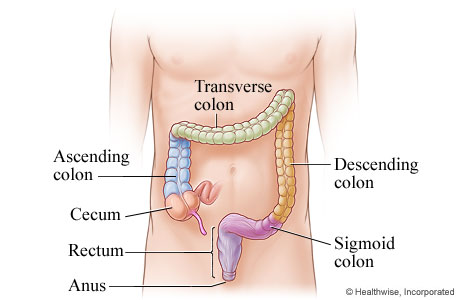
The large intestine (colon) extends from the cecum to the anus and includes the ascending colon, the transverse colon, the descending colon, the sigmoid colon, and the rectum.
Colon cancer site
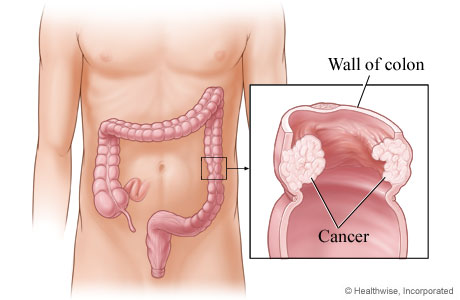
Cancer is shown in a section of the descending colon.
Colon section removed
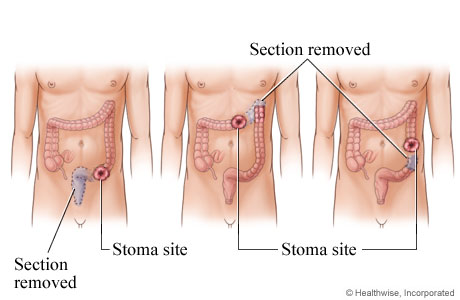
Surgery removes the section of colon that contains cancer.
Remaining colon attached to create a stoma
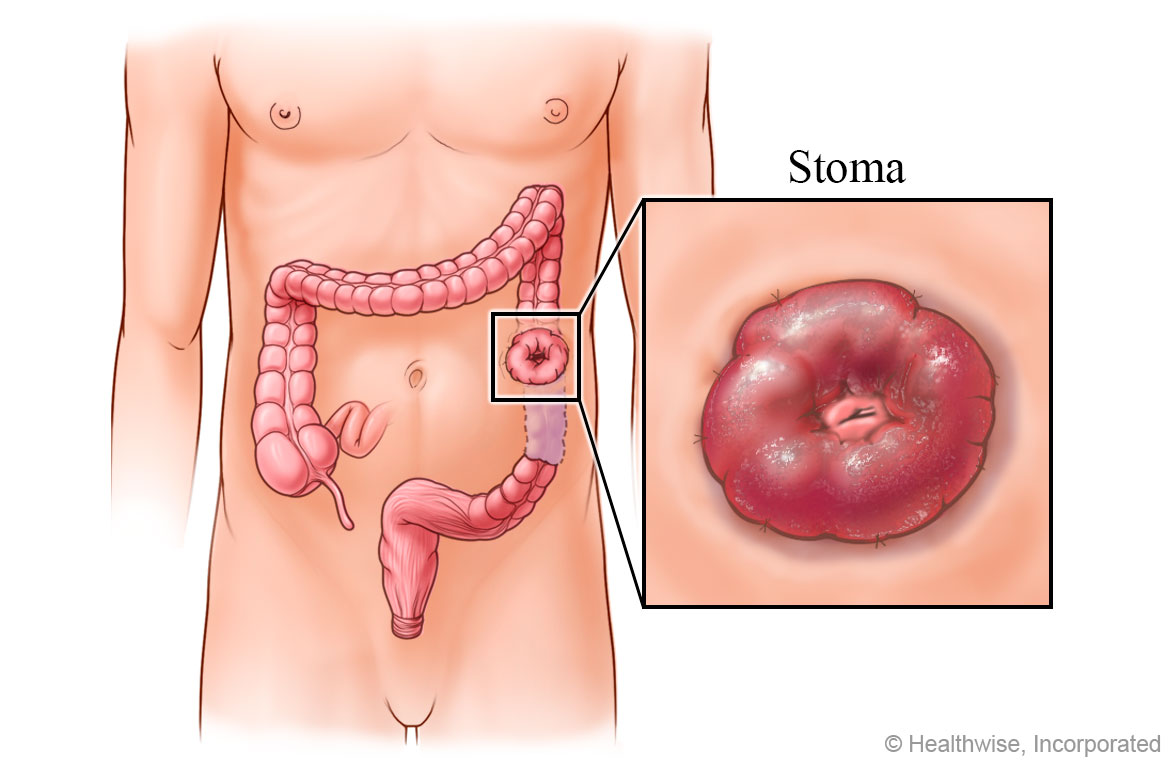
The surgeon connects the end of the remaining section of the colon to an opening made in the skin. This creates a stoma.
Colostomy pouch in place
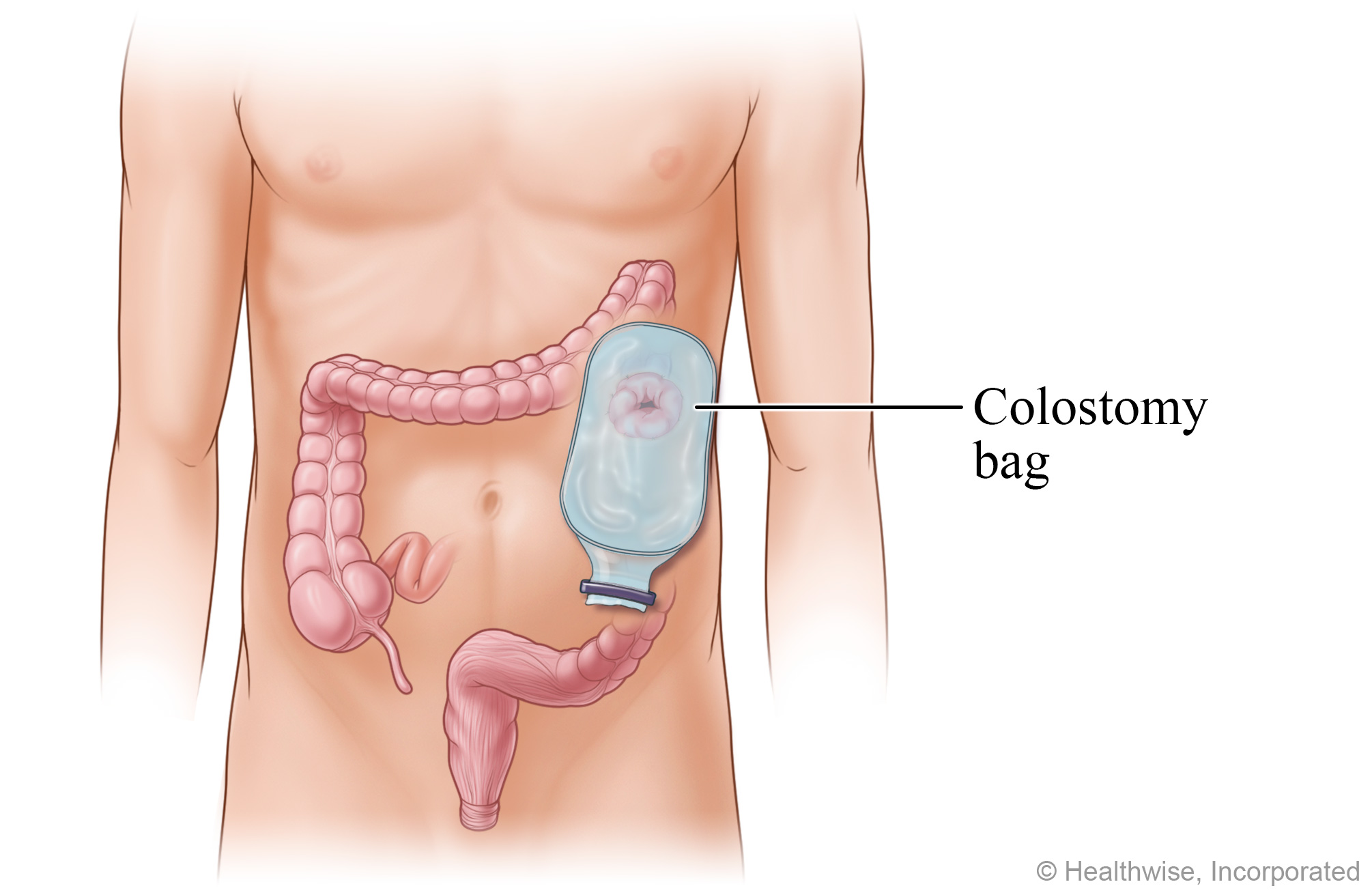
Body waste passes from the colon through the stoma into a colostomy pouch (or bag), which is taped to your body.
What To Expect
A colostomy usually requires general anesthesia and a hospital stay of a few days to a week. You may have a colostomy right after other surgery. You can expect some discomfort during the first few days after surgery. This can often be controlled with home treatment and drugs.
After the colostomy, a plastic bag called a colostomy pouch is taped over the opening on the outside of your body. You will be taught how to take care of your pouch and how to watch for infection. With proper care, you should be able to return to normal but nonstrenuous activities within a few weeks.
Learn more
Why It Is Done
A colostomy is done when part of your colon or rectum has been removed. It may be temporary while the colon heals or permanent if it is not possible to restore a connection so that stool can leave the body as usual. It may be done for colorectal cancer, diverticulitis, or other colon problems.
Risks
The risks of colostomy surgery may include bowel blockage (obstruction), a twisted bowel near the stoma, or problems with the stoma. These problems may include bleeding, the stoma shrinking in or bulging out, a sore (ulcer) in the bowel or an infection occurring.
Credits
Current as of: July 31, 2024
Author: Ignite Healthwise, LLC Staff
Clinical Review Board
All Ignite Healthwise, LLC education is reviewed by a team that includes physicians, nurses, advanced practitioners, registered dieticians, and other healthcare professionals.
Current as of: July 31, 2024
Author: Ignite Healthwise, LLC Staff
Clinical Review Board
All Ignite Healthwise, LLC education is reviewed by a team that includes physicians, nurses, advanced practitioners, registered dieticians, and other healthcare professionals.
This information does not replace the advice of a doctor. Ignite Healthwise, LLC disclaims any warranty or liability for your use of this information. Your use of this information means that you agree to the Terms of Use and Privacy Policy. Learn how we develop our content.
To learn more about Ignite Healthwise, LLC, visit webmdignite.com.
© 2024-2025 Ignite Healthwise, LLC.





